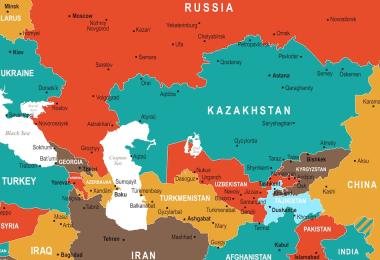Since the first examination took place back in 1991, close to 700 people have got their Norwegian Sommelier Certificate. Several of these have also done well in the International Sommelier Championships.
The Sommelier Association in Norway was established one year before the first education program started. In the beginning, there was only one school providing sommelier programmes, whereas today there are three: Kulinarisk Akademi, Norsk Sommelier Utdannelse and the Beverage Academy. All these, plus the WSET programs, count for about 100 students a year.
Svein Lindin, who until recently was a board member of the Sommelier Association, reports that the average career span of a sommelier is six years, before they move on to other work. Many of these sommeliers will move to importing companies, either as buyers or sales staff. Since Norway, Sweden and Denmark have similar languages, it’s relatively easy for people to move between countries for work: In Norway, many waiters are Swedish, some of whom also will enrol in Norwegian sommelier programmes.
As only the top restaurants can afford full-time sommeliers, most sommeliers will find themselves holding management positions as head waiters, restaurant managers, or in charge of the wine selection in hotels.
Pontus Dahlström
One of the most profiled sommeliers in Norway over the years, Pontus Dahlström is a true Nordic sommelier. He is originally from the southern part of Finland, close to Helsinki, where many Finns have Swedish as their mother tongue. When he first came to Norway he worked as a sommelier at Oslo’s leading Michelin-starred restaurant, Bagatelle, from 2000 to 2005. Then, as happens to many talented sommeliers, he was hired by one of the leading wine importers, Moestue Grape Selections, owned by one of the first top sommeliers in Norway, Christopher Moestue.
When the innovative Nordic restaurant Maaemo opened in 2010, Dahlström became a part owner, in charge of the wine cellar and restaurant. Maaemo, amazingly, was awarded two Michelin stars just one year after opening. It was awarded the third star this year.
Dahlström is the perfect sommelier, in that he works with a modest, service-oriented attitude, completely free from any wine snobbery. He uses his extensive wine knowledge to guide guests, never pushing expensive wines in order to gain the best profits. He believes that the wine should first of all be a perfect match to the restaurant’s food, rather than the ego of the sommelier. And the ability to find good-to-excellent wines at each price is essential. A good selection of wines by the glass should be available, with diversity within the wine list. While the new style of Nordic restaurants have a special liking for natural, organic and biodynamic wines, Dahlström doesn’t believe in following these wines religiously, and believes that a quality wine with a sense of place will be a top wine, regardless of whether it’s organic or natural.
Dahlström has since left Maaemo and this autumn will open his new place, Kolonialen, as a casual neighbourhood bistro. He promises the bill will suit normal wallets, not just corporate credit cards.
Magnus Egerdahl Nørsett
Dahlström is followed at Maaemo by Magnus Egerdahl Nørsett, a young sommelier active in championships. He is now co-owner and sommelier at Territoriet, a wine bar offering about 400 wines by the glass, thanks to the use of a Coravin system. He holds a degree from Lycée Hôtelier in France and sommelier and diploma certificates from the Beverage Academy. Before opening up Territoriet, he worked as a sommelier in another leading Michelin-starred restaurant in Oslo, Statholdergården, where Daniel Johnsen Ness is now head sommelier.
Nørsett also strongly believes in the importance of having a wine list match the food, but he also likes to challenge his customers to choose new and less-known wines. He likes to source organic and biodynamic wines, not because one can taste the difference, but because these producers are strongly dedicated to how the vineyard’s environment shapes the final wine. He has noticed the interest in natural wines, but also that too often these customers have no idea about different grape varieties, styles, or the philosophy behind the wine – and who then don’t like the actual wine when tasting it. Nørsett has a big question mark about the general quality of natural wines, and therefore does not focus too much on offering a broad selection. The aim of all his wine choices is to present good-quality wines that are value for money, and he particularly appreciates the Coravin, which now makes it possible to offer a Château Pétrus by the glass for those with such an interest.
Up-and-coming sommeliers
Many young Norwegian sommeliers have participated in national and International Sommelier Championships with impressive results.
For those under 25 years old, the Junior Wine Awards is of particular importance, because many participants later go on to the national and Nordic championships. Marius Fidje Tjelta, currently at restaurant Lysebu outside Oslo, won in 2015. In 2016, Kristoffer Aga won; he was former head sommelier at Colonialen, one of the leading restaurants in Bergen, but has now moved on to the three-Michelin-starred restaurant Geranium in Copenhagen. Eivind Øyan Nordås, also in Bergen, works in a team of three sommeliers at Lysverket, and Simon Valland is at Altona.
Simon Zimmermann, currently head sommelier at Happolati in Oslo, has participated in the championships for years, beginning in 2008, when he placed second. He won the Junior Wine Awards in 2010 and went on to win the Nordic Championship in 2013 and the National Championship in 2015, along with several silver and bronzes.
Henrik Dahl Jahnsen is currently manager and head sommelier at Bølgen & Moi Ny-Hellesund and the youngest-ever participant in the World Championship, where he placed eleventh.
Jessica Senning hails from Sweden and holds a WSET Level 3 qualification from Gustibus Wine & Spirit Academy. She has previously served as head waiter and sommelier at leading places like Trattoria Popolare, which has more than 1,000 wines listed, and Nedre Foss Gård, which closed at the end of last year due to fire. When asked about being a sommelier, she replied that for her, the first and greatest challenge of being in charge of a wine list is ensuring that ego doesn’t shine through. She sources wines from around the world and tries to stay abreast of current trends. Organic and biodynamic wines particularly appeal to her because of the vignerons’ philosophy and also the purity of the products. But in the end, it’s quality that counts. As she says, a bad wine is a bad wine, no matter how it’s made or by whom.
Heidi Iren Hansen competed for several years and got the silver medal in the national championships in both 2013 and 2015, and was awarded bronze in the Nordic Championship. She also won the Wines of South Africa (WOSA) Sommelier Cup in Stockholm and the Nordic Ruinart Sommeliers Challenge. She is now head of the wine department at Kulinarisk Akademi, and is in charge of the sommelier and WSET programs. Last year she started the master of wine (MW) programme and has gone through to the second year. Her goal is, of course, to become an MW and then possibly go back to the Sommelier Championships and hunt for gold. As one of the most talented young sommeliers in Norway, it will be interesting to follow her further career within the wine trade.
Outside Oslo
Talented young sommeliers are not only found in the capital of Oslo, but also in restaurants and hotels through the country.
Stavanger, on the southwest coast, has been one of the most vibrant culinary cities for several years now, offering top restaurants, a culinary academy, and food and wine festivals. Restaurant RE-NAA got their first Michelin star this year, becoming the first restaurant outside Oslo to do so. The responsibility for the wine selection is divided between two sommeliers, French-born Clement Bertrand, and Robin Pantzar from Sweden.
Pål Gøran Stolt-Larsen Pettersen started his career at 16 as dishwasher, before moving on to become a trainee waiter at Tango. He left for London and sommelier training at sketch, a gastro-brasserie in Mayfair, before returning once again to Tango. Despite being just 24, he already has extensive experience as head sommelier and head waiter.
At the tiny bistro Egget, Roy Klausen can be found in charge of an interesting wine selection. Egget is also looked upon as a very interesting wine bar, where the selections change constantly and can include rare Georgian wines next to everyday Italian wines.
Trondheim, in the middle of the country, is Norway’s third-largest city. Credo Restaurant has led the wine and food scene for years, and is where Steffen Kolstad is in charge of the wine selection. But it’s at the Radisson Blu Royal Garden Hotel, Trondheim’s leading convention hotel, where Norway’s ‘wine institution’, Torfinn Lerstad, is to be found. He is probably the first certified Norwegian sommelier to graduate from Restaurantakademiet in Stockholm, back in 1989. He had already been a certified chef and certified waiter, employed at the Royal Garden in 1984. He undertook studies at the École du Vin at Château Loudenne in 1990, and has been in charge of all wine selections at the Royal Garden since 1993. He is a leading member of the Chaîne des Rôtisseurs, an international gastronomy society founded in Paris in 1950, and he regularly hosts consumer wine tastings and winemaker dinners.
The multitaskers
Norway has many ‘multitasker’ sommeliers who are involved in different sectors of the wine trade, from lecturing at sommelier programs to being wine writers and trade consultants. Norwegian-Israeli Liora Levi is one of these, and has her own consulting company, Liora Levi Sommelier. After coming top of her class, she was encouraged to join the national Sommelier Championship team after taking her certificate in 2011. She quickly won prizes, including bronze at the Baltic Championship in 2011 and second place at the National Championship in 2012. She was named Nordic Champion in 2012, was the Norwegian champion in 2013, and is now one of the team coaches. She works as ambassador for Wines of Burgundy and Riedel, and holds different trade tastings and masterclasses. Ever month she is one of the wine experts for national TV channel TV2, and writes for a number of magazines, including Maison Food & Wine. But what she loves most is to hold wine lectures for restaurant staff, wine clubs and consumers, to increase the joy and understanding of wine and food pairing. She likes wines from all over the world and appreciates producers who are sustainable or organic. Natural wines, however, are wines she seldom recommends. Far too many guests find the wines difficult to understand and many of the wines do not perform well when served, so the guests end up being disappointed with both the wine and the restaurant recommendation.
Another multitasking sommelier is Svein Lindin. He has worked as a sommelier at several important restaurants in Oslo, like Bagatelle and Lofoten Fiskerestaurant, but has also been involved full-time in his own company, In Vino Veritas, since 2000. He runs wine courses and lectures, and travels a lot to visit new regions and wine producers. An excellent writer and photographer, he writes for Finansavisen, and on his own website Vinofil.no, where he shares his experiences, tastings and producer visits. He is also an official ambassador for Riedel, and has just recently resigned after six and a half years as a board member for the Norwegian Sommelier Association. As Svein says about himself: “Wine is not everything in my life, only 98%.”








